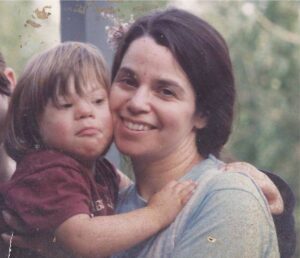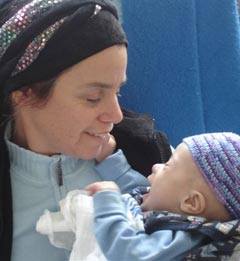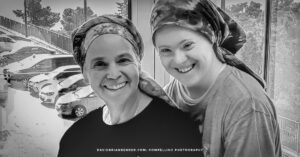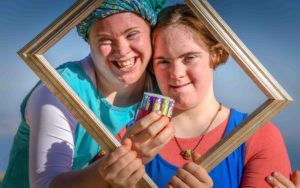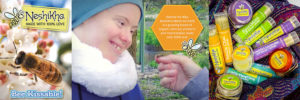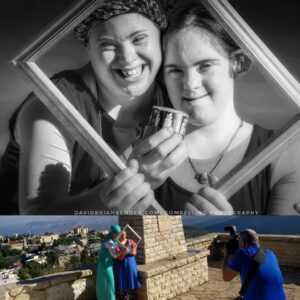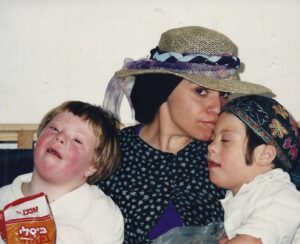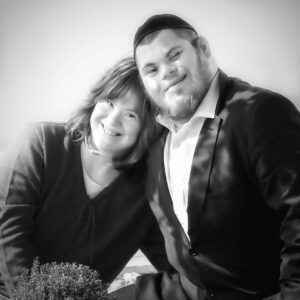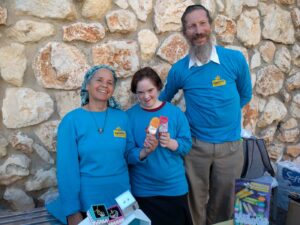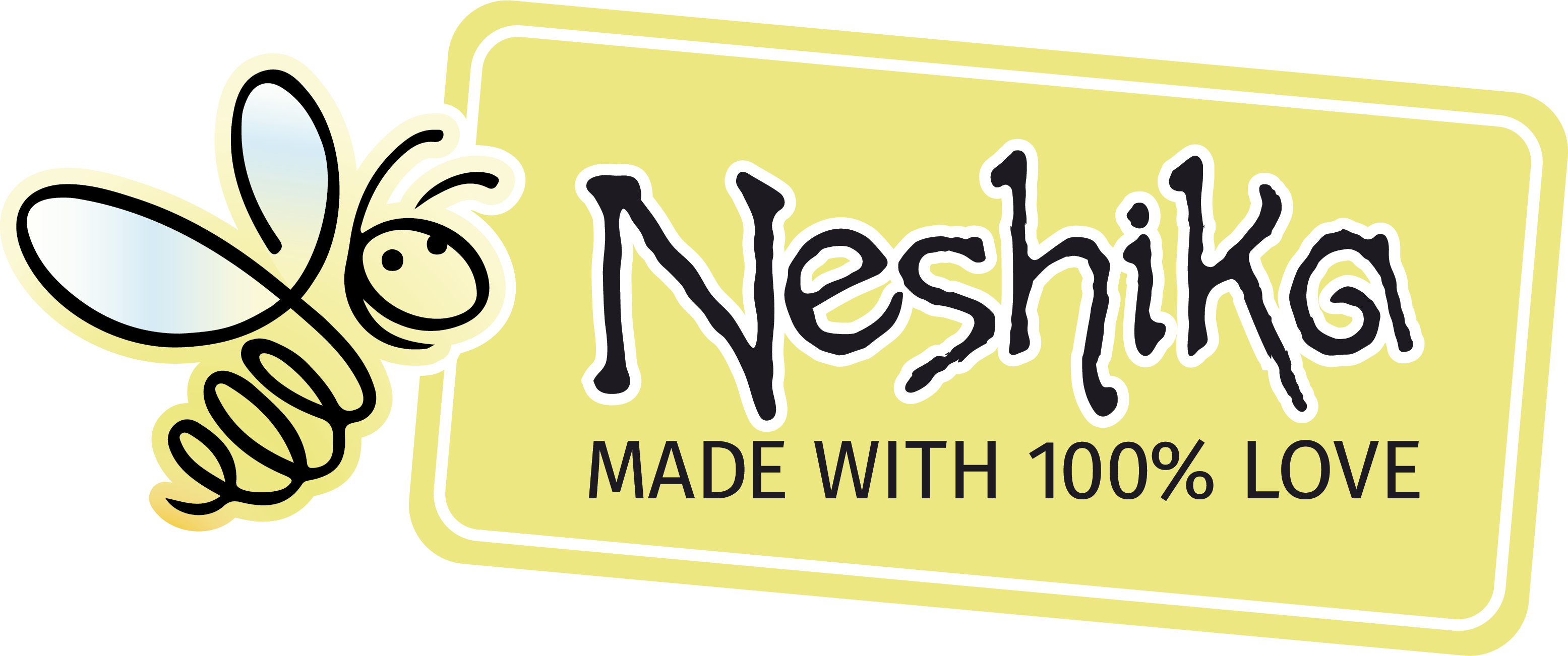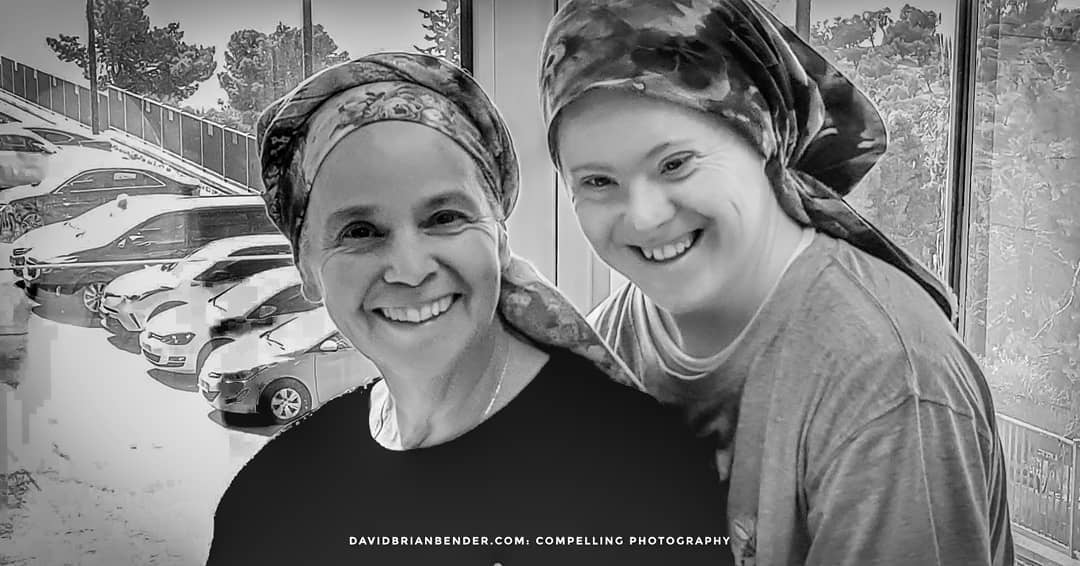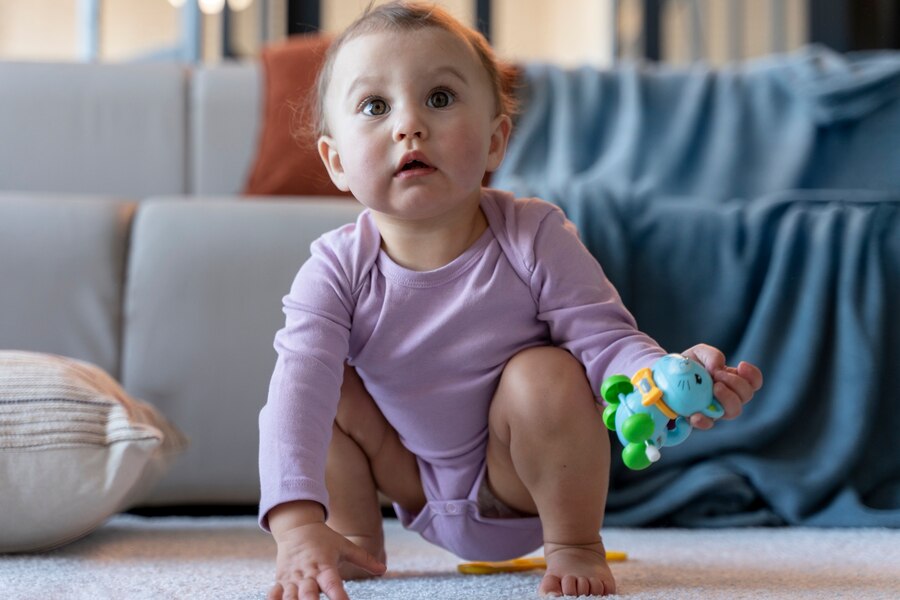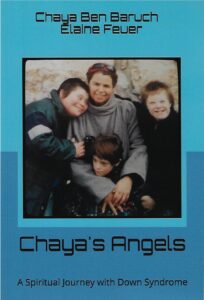


The rest of the motto – one I and my husband, Yisrael fervently live by – suggests that people who experience Down’s Syndrome have a fundamental ability, “to radiate joy and happiness and to offer a unique perspective on life with the ability to change others perspectives.”
It has certainly changed ours: when we had a baby who experienced Down Syndrome thirty years ago, we had no idea what the future held. I was already the parent of five “typical” children so l knew certain things would be similar, and others would be new territory. More on that further on…
But first, a bit of a genetics primer: each cell of a person with Downs Syndrome generally has 47 chromosomes instead of the typical 46. When cells in a typical baby replicate, 23 chromosomes from the mother’s egg are met with 23 from chromosomes of the father’s sperm to create one cell with 46 chromosomes.
There are many kinds of trisomy situations; where an extra chromosome is formed, most do not go on to produce a viable fetus. Although most trisomy embryos don’t make it, trisomy 21 embryos do have a better chance of surviving to birth and beyond.
Robert Perske, in his book “Hope for the Families,” asks us to consider these options: “Love your child exactly as he or she is. Real love does not demand that person’s change into what we want them to become before we start loving them.”
There are over 328 genes on the 21st chromosome affecting physical traits all the way from hair curliness to heart problems. Not every child with Downs will have all the symptoms. Some children have one line on the palm of their hand known as a simian crease. However, if you have one it does not mean your child is likely to have Downs. Forty percent of the children with an extra 21st chromosome have heart issues. However, in tandem, open heart surgery today is far more advanced, and technology and medical science have exponentially improved. The surgery on my oldest son’s heart thirty years ago was very different from the one our adopted son experienced 16 years ago, and even more so today in 2022.
Today we know that the babies’ cells intermingle with the mother’s cells, and a blood sample screening can detect Downs – as opposed to amniocentesis, which also has a greater chance of miscarriage.
Some babies with Downs have a few medical issues: our adopted, 29-year-old with Downs developed milk and possible gluten allergies as a young adult, whereas another of our children, Ori, had numerous medical issues, and was hospitalized throughout his first two years and the last year of his life.
Ori died at age fifteen and touched many people with his cheeky, stubborn attitude, and we miss him more than I can express.
People with Downs Syndrome once were institutionalized, due to societal conditioning to feel uncomfortable around imperfect people. People who were differently-abled had to contend with two handicaps: the actual handicap itself, and people’s perceived prejudices. I often felt my children’s biggest handicap was how others limited them.
People who have developmental disabilities, who are differently-abled, Perske explains, “are like birds with short wings trying to keep up as well as they could with others who grew and developed like soaring seagulls.” They have had to overcome more adversity than most.
There are societies that feel that the lives of the developmentally disabled are too difficult – and what parent wants their child to be an outcast or to “suffer,” and offer abortion as a preferable outcome to carrying to term and raising a child with Down or other congenital issues.
But if you kill off all the challenges in life, all the dragons, you also eliminate all the heroes as well. Individuals with Down may not be able to become brain surgeons, although some have succeeded in areas no one 30 years ago thought possible.
I am proud when I hear of a model with Downs Syndrome, an actor, or an individual with Downs who also sells socks. There are a lot of people who have helped them achieve their goals, and isn’t that a good thing?
That extra chromosome has affected some individuals with Downs in ways that surpass typical people. My children have a special way of giving love and spreading happiness that we all can learn from. Ori’s medical challenges made him into a fighter; he may have lost the battle in life but he certainly was a shining example of what is good in humanity. He was a giver as well as a child needing help.
Most of the individuals who experience Downs have pushed their parents and families in ways they never expected. Overall I feel they can bring out the best in us. Having a child with special needs is a challenge but mostly a blessing. If you do not personally know an individual who experiences Downs Syndrome you may not realize what you might be missing.